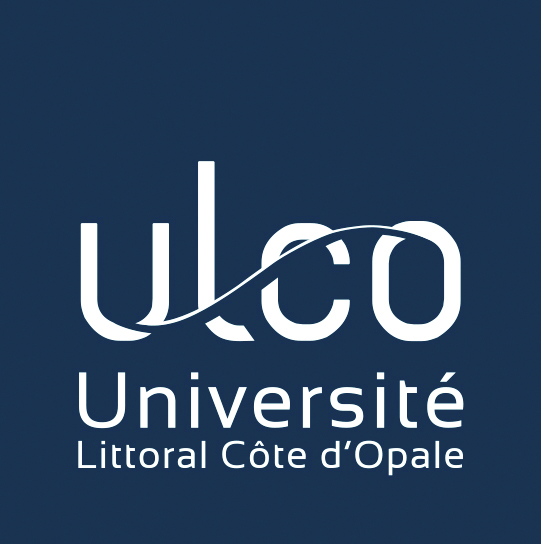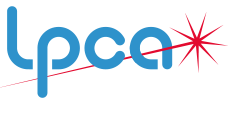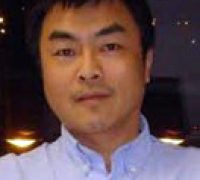
Weidong CHEN
LPCA – EA 4493 – Université du Littoral Côte d’Opale
MREI 2 / 189A, Avenue Maurice Schumann
59140 DUNKERQUE
Tél : +33 (0)3 28 65 82 64 / Fax : +33 (0)3 28 65 82 44
E-mail : chen@univ-littoral.fr
Weidong Chen a obtenu son B.S. en radio-physique du département d’électronique de l’Université SUN YAT-SEN (Guangzhou, Chine), son M.S. et titulaire d’un doctorat de l’Université des Sciences et Technologies de Lille (USTL) en France. Il a été professeur à l’Université de la côte d’opale du Littoral (France) en 1993 et est devenu professeur ordinaire en optique en 2003. Il est professeur adjoint à l’Université de Rice (États-Unis) et professeur invité à l’Institut d’optique et de mécanique fine de Anhui. (Académie chinoise des sciences, Chine).
Ses recherches portent actuellement sur: (1) les développements de l’instrumentation photonique pour la spectroscopie appliquée; (2) Détection optique et métrologie des espèces atmosphériques: gaz à l’état de traces (concentration, rapports isotopiques, profil de concentration verticale) et aérosols (propriétés optiques); (3) Génération d’une source laser paramétrique optique par conversion de fréquence. Il est auteur / co-auteur de plus de 160 articles évalués par des pairs dans des revues scientifiques, des comptes rendus de conférences et des livres. il a plus de 220 contributions à des conférences (y compris des présentations orales et par affiches à des conférences invitées) et des séminaires. Il a été récompensé pour les développements d’un spectromètre THz à transformée de Fourier (Prix du progrès scientifique et technique de la province du Guangdong en 1986, Chine) et d’un spectromètre à laser infrarouge basé sur la génération de différence de fréquence (nomination pour le prix Sir Harold Thompson Memorial Award de 1999, États-Unis). .
Le Dr Chen a été co-éditeur du numéro spécial de LACSEA 2016 dans l’optique appliquée (OSA), CO-GUEST-EDITOR pour le numéro spécial de capteurs sur «La détection optique et l’imagerie de la plage UV à THz» (2018), et CO -EDITOR pour un livre intitulé «Techniques avancées de mesure spectroscopique pour les sciences de l’atmosphère» avec Elsevier (en cours).
Son groupe chez ULCO travaille au développement d’instruments photoniques des UV aux IR moyens pour la métrologie optique d’espèces atmosphériques clés (gaz à l’état de traces, aérosols) avec le soutien de programmes nationaux européen (INTERREG) et français (ANR, ACI, CNRS). , ainsi que des programmes régionaux (IRENI, CLIMIBIO).
Weidong Chen obtained his B.S. in Radio-Physics from the department of Electronics of SUN YAT-SEN University (Guangzhou, China), his M.S. and PhD degree from University of Sciences & Technologies of Lille (USTL) in France. He has been on the faculty at University of the Littoral Opal Coast (France) in 1993 as Lecturer and became full Professor of Optics in 2003. He is adjunct faculty of Rice University (USA) and invited professor of Anhui Institute of Optics and Fine Mechanics (Chinese Academy of Sciences, China).
His current research interests include : (1) Developments of photonic instrumentation for applied spectroscopy; (2) Optical sensing and metrology of atmospheric species : trace gases (concentration, isotope ratios, vertical concentration profile) and aerosols (optical properties); (3) Optical parametric laser source generation by frequency conversion. He has authored/co- authored more than 160 peer-reviewed articles in scientific journals, conference proceedings and books. he has over 220 conference contributions (including invited conferences oral and poster presentations) and seminars. He has been rewarded for the developments of a Fourier transform THz spectrometer (1986 Guangdong Province Prize for Scientific and Technical Progress, China) and an infrared laser spectrometer based on difference-frequency generation (nomination for the 1999 Sir Harold Thompson Memorial Award, USA).
Dr. Chen served as CO-EDITOR for the LACSEA 2016 feature issue in Applied Optics (OSA), CO-GUEST-EDITOR for the Special Issue of Sensors on « Optical Sensing and Imaging from UV to THz Range » (2018), and CO-EDITOR for a book entitled “Advanced Spectroscopic Measurement Techniques for Atmospheric Science” with Elsevier (ongoing).
His group at ULCO is working on development of photonic instruments from the UV to the mid- IR for optical metrology of key atmospheric species (trace gases, aerosols) with support from European (INTERREG) and French national programs (ANR, ACI, CNRS), as well as from regional programs (IRENI, CLIMIBIO).
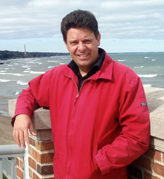
Eric FERTEIN
LPCA – EA 4493 – Université du Littoral Côte d’Opale
MREI 2 / 189A, Avenue Maurice Schumann
59140 DUNKERQUE
Tél : +33 (0)3 28 65 82 52 / Fax : +33 (0)3 28 65 82 44
E-mail : eric.fertein@univ-littoral.fr
Ingénieur de recherche en physique instrumentale, Eric Fertein s’oriente surtout dans la détection de gaz par spectroscopie laser dans le domaine infra rouge et térahertz. En relation avec les enseignants chercheurs il monte des expériences innovantes dans le domaine.
Son travail l’amène souvent à être le lien entre le chercheur et le distributeur. Il a aussi un réseau de collaborateurs avec lesquels il monte des projets industriels qu’il présente aux entreprises via l’association ARMIR, le CNRS ou le ministère.
Il est élu au conseil scientifique de l’Université du Littoral, membre du conseil scientifique stratégique du Pôle de Recherche et d’Enseignement Supérieur Lille Nord de France.
Depuis 2010, il est chargé de mission au patrimoine scientifique de l’Université du Littoral – Côte d’Opale.
Research engineer in instrumental physics, Eric Fertein focuses mainly on the detection of gas by laser spectroscopy in the infrared and terahertz fields. In relation with the teacher-researchers he brings innovative experiences in the field.
His work often leads him to be the link between the researcher and the distributor. He also has a network of collaborators with whom he sets up industrial projects that he presents to companies via the ARMIR association, the CNRS or the ministry.
He is elected to the scientific council of the University of the Littoral, member of the strategic scientific council of the Pole of Research and Higher Education Lille North of France.
Since 2010, he has been in charge of scientific heritage missions at the University of Littoral – Côte d’Opale.
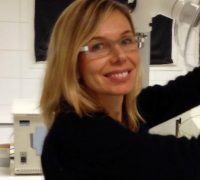
Cécile COEUR
LPCA – EA 4493 – Université du Littoral Côte d’Opale
Bâtiment IRenE / 189A, Avenue Maurice Schumann
59140 DUNKERQUE
Tél : +33 (0)3 28 23 76 42 / Fax : +33 (0)3 28 65 82 44
E-mail : coeur@univ-littoral.fr
Cécile Coeur est née à Grenoble en 1970.
En 1997, elle a obtenu le grade de Docteur en Chimie de la Pollution Atmosphérique et Physique de l’Environnement à l’Université Joseph Fourier (Grenoble 1). Sa thèse a été effectuée au GRECA (Groupe de Recherche sur l’Environnement et la Chimie Appliquée) sous la direction du Professeur Panayotis Foster. Durant sa thèse, elle a participé au programme européen BEMA (Biogenic Emissions in the Mediterranean Area) sur la mesure des flux de COV (Composés organiques Volatils) biogéniques et leur impact sur la chimie troposphérique. Elle a également étudié la réactivité troposphérique de COV biogéniques en chambre de simulation.
En 1998 effectue un stage postdoctoral au MiTAC (Micro and Trace Analysis Center) de l’Université d’Anvers (Belgique) financé par le programme européen « Global Change and Sustainable Development » sous la direction du professeur Freddy Adams. Ces travaux concernent la caractérisation physico-chimique d’aérosols atmosphériques par Microscopie Electronique à Balayage couplée à une microanalyse X (MEB-EDX).
En septembre 1998, elle obtient un poste de Maitre de Conférences à l’Université du Littorale Côte d’Opale au sein de l’UMR CNRS « ELICO » (Ecosystèmes Littoraux et Côtiers) où elle conçoit et instrumente une chambre de simulation atmosphérique (de 8 m3) pour l’étude de la réactivité troposphérique des COV. Elle s’intéresse également à la caractérisation des AOS (Aérosols Organiques Secondaires).
En janvier 2008, elle rejoint le LPCA où elle crée le groupe SIMU (étude de la réactivité des COV en chambre de simulation) et développe une seconde chambre de simulation (CHARME: CHamber for the Atmospheric Reactivity and the Metrology of the Environment).
Une partie de ses travaux concerne également la métrologie optique d’espèces d’intérêt atmosphérique en collaboration avec les groupes DFG et THz.
Cécile Coeur was born in Grenoble in 1970.
In 1997, she obtained the degree of Doctor in Chemistry of Atmospheric Pollution and Physics of the Environment at the Joseph Fourier University (Grenoble 1). His thesis was conducted at GRECA (Research Group on Environment and Applied Chemistry) under the direction of Professor Panayotis Foster. During her thesis, she participated in the European BEMA (Biogenic Emissions in the Mediterranean Area) program on the measurement of biogenic volatile organic compounds (VOCs) and their impact on tropospheric chemistry. She also studied the tropospheric reactivity of biogenic VOCs in a simulation room.
In 1998, he completed a postdoctoral fellowship at the Micro and Trace Analysis Center (MITAC) of the University of Antwerp (Belgium) funded by the European program « Global Change and Sustainable Development » under the direction of Professor Freddy Adams. This work concerns the physicochemical characterization of atmospheric aerosols by Scanning Electron Microscopy coupled with X-ray microanalysis (MEB-EDX).
In September 1998, she obtained a position as Associate Professor at the Littoral Côte d’Opale University within the UMR CNRS « ELICO » (Littoral and Coastal Ecosystems) where she designed and orchestrated an atmospheric simulation chamber (from 8 m3) for the study of the tropospheric reactivity of VOCs. She is also interested in the characterization of AOS (Secondary Organic Aerosols).
In January 2008, she joined the LPCA where she created the SIMU group (study of reactivity of VOCs in a simulation chamber) and developed a second simulation chamber (CHARME: CHAMber for the Atmospheric Reactivity and the Metrology of the Environment).
Part of his work also concerns the optical metrology of species of atmospheric interest in collaboration with the DFG and THz groups.
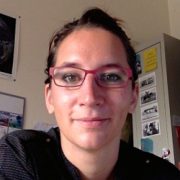
Suzanne CRUMEYROLLE
LOA – LOA UMR 8518 – Enseignant-Chercheur
UFR de Physique – Bâtiment P5 – Bureau 358
Université de Lille / 59655 Villeneuve d’Ascq Cedex
Tél : +33 (0)3 20 43 44 72
E-mail : suzanne.crumeyrolle@univ-lille.fr
Career
- 2013-present: Maître de conférence en Physique à l’Université de Lille 1 au Laboratoire d’optique atmosphérique (CNU 37ème).
- 2011-2013: NASA Langley Research Center (LaRC), Hampton (USA). Séjour Post-doctoral
Responsable du projet : Bruce Anderson (NASA LaRC, Hampton) - 2011: CSIRO, Aspendale (Australie). Séjour Post-doctoral
Responsable du projet : Melita Keywood (CSIRO, Aspendale) - 2008-2010: LaMP, Clermont Ferrand. Séjour Post-doctoral CNRS de deux ans.
Responsable du projet : Alfons Schwarzenboeck, Pr. (LaMP, Clermont Ferrand) - 2004-2008: Doctorat (Allocation de recherche Météo-France): CNRM, Université Paul Sabatier, Toulouse.
Titre de thèse : Impact des systèmes convectifs sur les propriétés hygroscopiques des aérosols : Analyse de deux cas d’étude durant la campagne de mesures AMMA.
Responsable du projet : Jean-Louis Brenguier (IGPC) et Laurent Gomes (CR)
Activities
I develop research to characterize aerosol properties (optical, physical and chemical properties) to study their life cycle within the atmosphere from the aerosol formation thought their interactions with clouds.
Methods
- Link between physical, chemical and optical properties
- Effect of water uptake on optical properties
- Synergy between in-situ and remote sensing measurements
- Modeling of aerosol aging (M7)
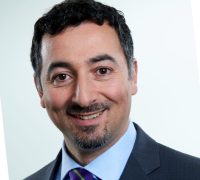
Rony AKIKI
R&D program manager
ENVIRONNEMENT S.A
